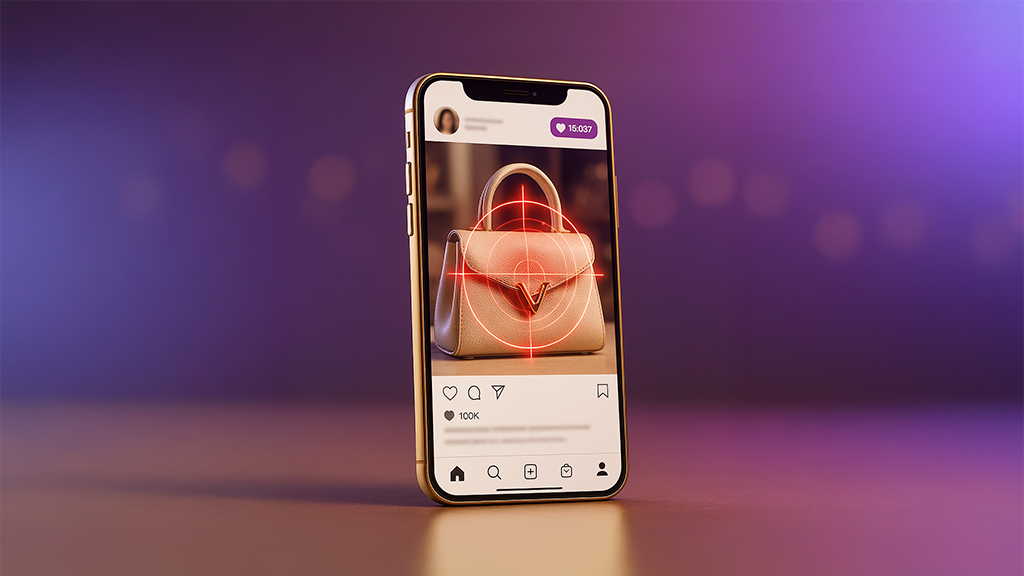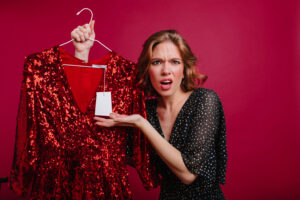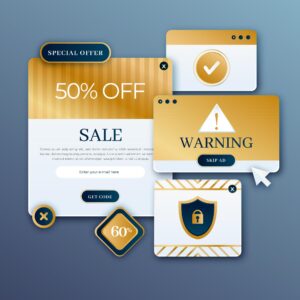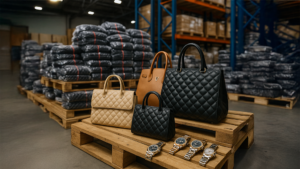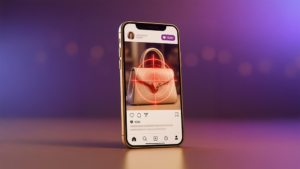The UAE is no stranger to luxury. From flagship boutiques in Dubai Mall to high-profile fashion events, the country has built its reputation as a haven for authentic, high-end shopping. But in the past year, an unsettling trend has emerged beneath this glamorous surface, one that has left multiple women out of pocket, emotionally shaken, and legally entangled because of fake luxury bags.
Several residents have reported losing thousands of dirhams to an elaborate counterfeit bag scheme operating entirely through social media. The scam was sophisticated, wrapped in branded packaging and persuasive sales pitches, making it hard for buyers to suspect anything was amiss, until it was too late.
A Scam That Felt Personal
The victims weren’t casual bargain hunters; many were fashion-conscious women accustomed to buying luxury. They stumbled upon what appeared to be an exclusive opportunity, designer bags from brands like Chanel and Louis Vuitton at steep discounts, sold by someone who seemed trustworthy.
The seller, posing as a wealthy Arab woman, operated in private Instagram pages and large Facebook groups dedicated to pre-loved luxury. Her profile portrayed wealth, exclusivity, and a deep connection to luxury culture. She spoke the language of high fashion fluently, assuring buyers these pieces were authentic and sourced from VIP gifts, personal collections, or boutique sales.
One buyer spent over USD 5,445 across several purchases before realizing the truth. Another narrowly avoided losing USD 8,170 after demanding verification before payment. For many, the emotional sting of betrayal outweighed even the financial loss.
Selling the Illusion of Authenticity
The seller’s tactics worked because they were tailored to how trust is built in luxury resale communities.
- Professional Presentation: Every delivery came with branded boxes, dust bags, tissue paper, and ribbons, items counterfeiters often replicate to perfection.
- Elaborate Unboxing Videos: Social media posts showcased detailed, high-quality unboxings, a hallmark of real luxury resale influencers.
- Social Proof: Multiple women commented on her posts praising their “purchases,” creating the illusion of satisfied customers.
- Exclusivity Language: Terms like “VIP gift” or “limited stock” triggered a fear of missing out, pushing buyers to pay quickly without verification.
In the luxury resale world, presentation is everything. By mimicking genuine practices and blending into communities that thrive on trust, the seller bypassed the typical red flags that signal fraud.
When the Truth Emerged
The unraveling of the scam often began with subtle doubts, a slightly off logo, a clasp that felt too light, or leather that didn’t quite match the brand’s signature texture. Victims who took items to official brand boutiques for authentication received confirmation: the bags were fake.
That’s when the second blow came. Requests for refunds were met with hostility, insults, or complete silence. In some cases, buyers were blocked entirely. Others were accused of defamation when they voiced concerns publicly, a serious legal risk in the UAE, where defamation laws are strict and can lead to fines or jail time.
The Legal Reality in the UAE
Under Federal Decree Law No. 42 of 2023 on Combatting Commercial Fraud, trading in counterfeit goods, whether in physical markets or online, is a criminal offense. Penalties are steep:
- Fines from Dh5,000 to Dh2 million
- Jail terms from 6 months to 2 years
- Additional penalties for managers aware of the fraud but failing to act
Dubai Customs reported seizing over 15 million counterfeit items in 2023 alone, valued at Dh73.4 million. While most seizures happen at physical entry points, the challenge now lies in tracking scams that operate entirely in digital spaces, often across multiple jurisdictions.
What Consumers Should Do Before Buying Luxury Online
The appeal of discounted fake luxury bags and other products is undeniable. But in the current environment, trust needs to be backed by tangible proof:
- Demand Authentication: Use recognized third-party authentication services before payment. Reputable sellers should welcome this.
- Request Original Receipts: Any genuine bag bought from a boutique comes with a receipt. Lack of one should be a warning sign.
- Stick to Verified Platforms: Use trusted resale marketplaces that require authentication before listing.
- Avoid Private Deals: While community groups feel safe, they lack the buyer protections of established resale sites.
- Check Seller History: Look for long-standing accounts with verifiable positive reviews, not just recent praise.
Why This Is Not an Isolated Scam
This fake luxury bags incident isn’t unique to the UAE, it’s part of a global counterfeit evolution. The distribution channels have moved from shady street markets to curated Instagram feeds, encrypted WhatsApp groups, and invite-only Facebook communities.
The targeting is precise. Scammers infiltrate trusted networks, engage with members, and leverage social dynamics to establish credibility. In the UAE, where luxury shopping is part of the lifestyle, such scams find fertile ground.
Globally, major platforms like Amazon have introduced AI-powered counterfeit detection. In Asia, authorities have raided markets like Divisoria in the Philippines, seizing hundreds of fake designer goods. The UAE case is simply another chapter in the same story, different geography, same playbook.
The Need for Stronger Digital Enforcement
While the UAE’s customs efforts have successfully intercepted millions of fake goods, digital-only scams are harder to catch. These sellers often operate without a fixed location, ship from multiple countries, and vanish when suspicion arises.
A stronger response could include:
- Dedicated digital anti-fraud units within law enforcement
- Closer collaboration with social media companies to track repeat offenders
- Public awareness campaigns targeting luxury resale buyers
- Mandatory verification systems for high-value online transactions
These measures won’t eliminate the problem entirely, but they could significantly reduce its scale and impact.
Why Trust Is the Real Luxury
For most buyers, luxury isn’t only about the physical item, it’s about the assurance that what they hold is genuine, crafted to the highest standards, and carries the brand’s history. Counterfeit goods strip away that trust, replacing it with doubt and disappointment.
In an age where resale platforms and social media make luxury more accessible than ever, the responsibility falls on both buyers and sellers to maintain that trust. For buyers, this means slowing down, verifying, and refusing to let presentation override proof. For legitimate sellers, it means being transparent, offering authentication, and actively distancing themselves from counterfeit culture.
The fake luxury bags scam that played out in the UAE is a stark reminder: in the luxury world, trust is the real currency. You can replicate packaging, logos, and even the shopping experience, but authenticity isn’t just a label; it’s a commitment.

